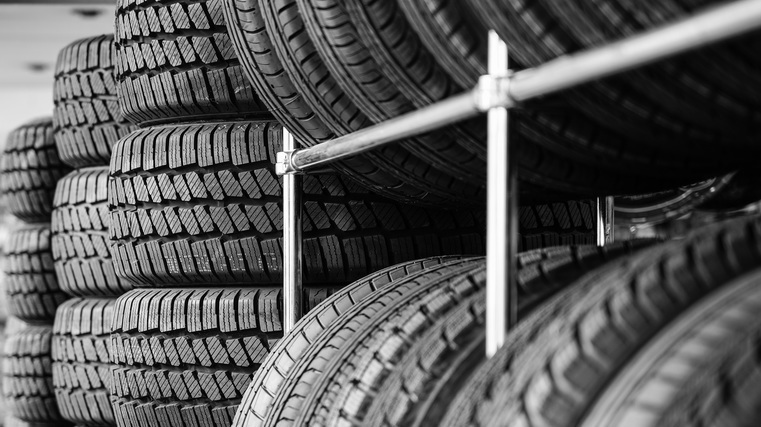Importers liable for tyre fees

Importers of passenger vehicles will be liable for lower fees under a product stewardship scheme than those bringing light commercials into New Zealand.
The Imported Motor Vehicle Industry Association (VIA) says the charge for cars and SUVs will be $33.25 per vehicle, while the cost for vans and utes is $66.70.
The fees will be payable from March 1, 2024, with the government having now published the Waste Minimisation (Tyres) Regulations 2023.
These are the rules that enable product stewardship for end-of-life tyres (ELTs) to be launched next year. They apply to those importing or selling regulated tyres, whether loose or attached to a vehicle, and such operators need to be registered with Tyrewise as part of the scheme.
In addition, VIA says it’s pleased its efforts to ensure the scheme’s administration will be minimal for dealers were successful with declaration and payment to Waka Kotahi being included in on-road costs (ORC).
“The varied structure of business models means vehicle importers could have a variety of obligations depending on where and when vehicle registration takes place,” says Malcolm Yorston, VIA’s technical support.
Scenario one
You are the vehicle importer but you will not register the vehicle. From March 1, 2024, you are responsible for advising your customer of the obligation to pay the fee at the first point of registration or to self-declare the import to the Ministry for the Environment (MfE) if the vehicle will not be registered.
Scenario two
You are the vehicle importer and you register it. From March 1, you will pay the fee at the first point of registration via ORC. You must transparently declare the fee to your customer on the invoice or sale agreement.
Scenario three
You are the vehicle importer, you register it and offer a tyre-fitting service. From March, you are responsible for paying the fee at the first registration as part of ORC. You must declare the fee to the buyer.
From September 1, you must retain ELTs taken off the vehicle. You must use the Tyrewise software – phone or web app – to book the free collection of those ELTs. You cannot charge your customer for disposing of their old tyres.
Scenario four
You are the vehicle importer and the vehicle is not registered for on-road use. From March 1, you must advise the MfE you have imported a vehicle that will not be registered for road use. A link to the form to report the information about it will be found on www.tyrewise.co.nz.
You must declare the tyres attached to the imported vehicle via the form. This enables the MfE to invoice you for the number and type of tyres attached to the vehicle. You must transparently declare the fee to the consumer.
If, at a later date, your customers choose to register vehicles for on-road use, they can use invoices or sale agreements to prove to Waka Kotahi the tyre-stewardship fee has already been paid. You should advise your customer of the need to retain the invoice or sale agreement for this purpose.
Key facts on ELTs
• The regulations covering the product stewardship of tyres were published in September 2023.
• They come into effect from March 1, 2024, and Tyrewise will be fully operational from September 1 next year.
• All importers and sellers of regulated tyres must act in accordance with Tyrewise, the accredited product stewardship scheme.
• Tyrewise will reduce environmental harm by managing ELTs from collection to processing.
• All importers are classed as liable parties and all liable parties must register with Tyrewise.
• Charges, known as tyre-stewardship fees, must be paid on all regulated tyres whether loose or attached to a vehicle.
• Regulated tyres are all pneumatic and solid tyres for use on motorised vehicles, including cars, trucks, buses, motorcycles, aircraft and off-roaders.
• The fees paid must be transparently passed on through the supply chain to the consumer in the same way as ORC.
• Charges for loose tyres and vehicles not for use on roads will be collected from the importer by the MfE.
• Fees on vehicles registered for on-road use will be collected by Waka Kotahi as part of ORC at the first point of registration.
Register with Tyrewise
Ensuring tyres end up where they can create value for the economy requires all parts of the supply chain to register with Tyrewise – from importers and retailers to transporters and processors. This includes all importers of vehicles.
Registration allows Tyrewise to provide relevant information for your team and customers and communicate with you regarding your obligations. You can start the registration process at www.tyrewise.co.nz. The team will then visit most participants to discuss their role and obligations.
Part of the registration process includes your agreement to the code of practice as an importer of a regulated product. This document will be supplied as part of the registration process.





